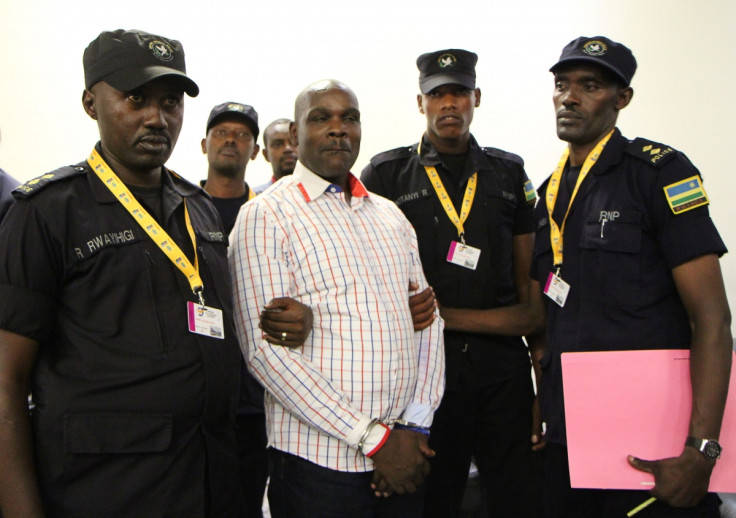DRC extradites Ladislas Ntaganzwa to Rwanda to face trial for role in organising 20,000 massacres

Ladislas Ntaganzwa, one of the nine most-wanted fugitives suspected of being involved in thousands of killings during the 1994 Rwandan genocide, has been on the run for more than two decades. On 20 March, the Democratic Republic of Congo (DRC) extradited him to Rwanda to face trial by a UN tribunal.
His deportation comes three months after he was arrested in eastern DRC. "We have extradited him back to Rwanda to face justice," said Congolese Information Minister Lambert Mende, according to a Bloomberg report. He was flown from Kinshasa to Kigali, the capital cities of the DRC and Rwanda respectively.
Ntaganzwa stands accused of organising mass rapes and "substantially participating in the "planning, preparation and execution of the massacre of over 20,000 Tutsis" over a four-day period. The bloody Rwandan genocide saw the slaughter of 800,000 Tutsis and moderate Hutus in just 100 days.
The 53-year-old faces nine counts of genocide, crimes against humanity and violating the Geneva Conventions. "We are very happy to see this [the extradition] effected," said Jean-Bosco Siboyintore, head of Rwanda's Genocide Fugitive Tracking Unit. "We have been long waiting for it and we are happy that the Mechanism for international criminal tribunal (MICT) have so far delivered him from DRC," he added.
Prior to handing him over to Kigali, Ntaganzwa was transferred into UN custody. "Ladislas Ntaganzwa, who is accused of participating in genocide in Rwanda, has been in our hands since December 2015. We have decided to hand him over to the UN Mechanism for International Criminal Tribunals (MICT)," said DRC Justice Minister, Alexis Thambwe.
The US labelled Ntaganzwa as "one of the main instigators of the genocide" and had offered a £3.28m (€4.55m, $5m) reward for his arrest. Soon after the genocide, Ntaganzwa fled into neighbouring Congo.
© Copyright IBTimes 2024. All rights reserved.






